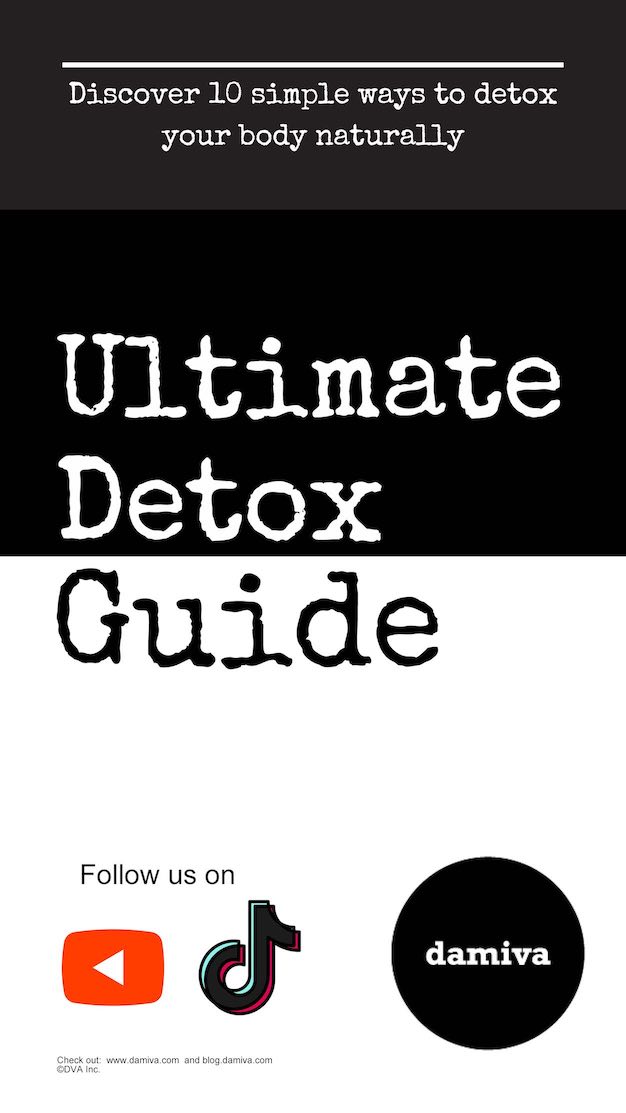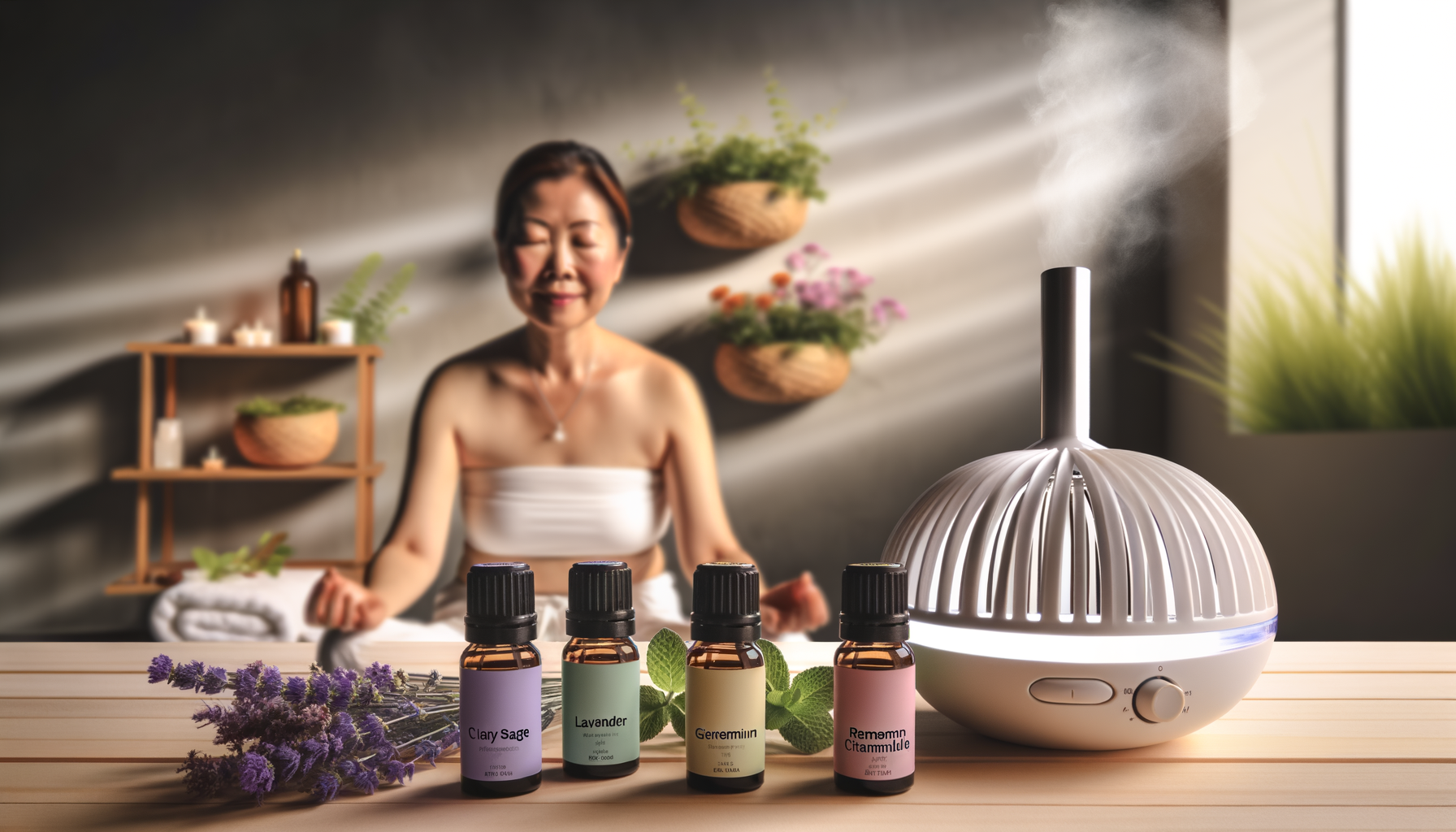Introduction to Essential Oils and Menopause
Menopause is a natural biological process that marks the end of a woman’s reproductive years. Typically occurring in the 40s or 50s, menopause is diagnosed after 12 consecutive months without a menstrual period. Symptoms vary widely among women but often include hot flashes, night sweats, mood swings, sleep disturbances, and cognitive changes. These symptoms can disrupt daily life, prompting many to seek relief through various means, including holistic health approaches like essential oils.
The Role of Essential Oils in Holistic Health
Essential oils are concentrated plant extracts obtained through distillation or mechanical methods. They are integral to aromatherapy, a complementary therapy that involves inhaling the aroma of essential oils to improve physical and emotional well-being. In holistic health, essential oils are believed to interact with the body’s chemistry to bring about beneficial changes, including relief from menopause symptoms.
Overview of Essential Oils for Menopause Relief
Several essential oils are reputed to provide relief for menopausal symptoms. For instance, clary sage is thought to have estrogenic properties that may help balance hormones, while peppermint oil can provide a cooling effect for hot flashes. Lavender is renowned for its calming properties, potentially aiding in sleep and mood regulation. Geranium may assist in hormonal balance and enhance emotional well-being. Lastly, basil and citrus oils have been studied for their potential to alleviate various menopausal discomforts. It’s important to consult with a healthcare professional before using essential oils, especially if you have allergies or are taking medications. Proper dilution and application methods are crucial for safety and efficacy.

From unhappy, dry, and sandpaper to silky, smooth and feeling good. That’s Cleo. Cleo is a 100% natural labial balm to moisture and soothe “your other lips”. Cleo is chemical-free, water-free, pH optimized and helps maintain and restore your delicate labial skin’s natural flora. Ideal for daily use or as needed. Get the most silky, lovable lips ever.
Hormonal Balance and Essential Oils
The Science of Hormones and Menopause
Menopause is a natural biological process characterized by the cessation of menstruation and a decline in the production of hormones, particularly estrogen and progesterone. This hormonal shift can lead to a variety of symptoms, including hot flashes, mood swings, and sleep disturbances. The body’s endocrine system, which regulates hormone production, becomes less efficient during menopause, often resulting in hormonal imbalances that can affect overall well-being.
Essential Oils with Estrogenic Properties
Some essential oils contain phytoestrogens, plant-based compounds that mimic the effects of estrogen in the body. These oils can potentially help balance hormones and alleviate menopausal symptoms. Clary sage is known for its ability to help regulate estrogen levels and may reduce the frequency of hot flashes. Geranium oil is thought to influence hormonal secretions, promoting balance and reducing mood swings. Basil and citrus oils like neroli have also been associated with positive effects on hormone levels and menopausal symptoms.
How to Use Essential Oils for Hormonal Support
Essential oils can be used in various ways to support hormonal balance during menopause:
- Topical Application: Mix essential oils with a carrier oil, such as coconut or jojoba oil, and apply to the skin. Common application sites include the abdomen, feet, and back of the neck. This method allows the oils to be absorbed into the bloodstream and interact with the hormonal system.
- Aromatherapy: Inhaling essential oils through a diffuser or directly from a tissue can have immediate effects on mood and stress levels, indirectly supporting hormonal balance.
- Massage: Combining essential oils with massage therapy can enhance relaxation and stress relief, further promoting hormonal equilibrium.
It is important to note that essential oils should be used with caution. Always dilute with a carrier oil, perform a patch test to check for skin reactions, and consult with a healthcare professional, especially if you are taking other medications or have underlying health conditions.
By integrating essential oils into your daily routine, you may find a natural and holistic approach to managing the hormonal changes associated with menopause.
Managing Menopause Symptoms with Aromatherapy
Hot Flashes and Night Sweats
Hot flashes and night sweats are among the most common and disruptive symptoms experienced during menopause. Clary sage oil is known for its cooling properties and can be applied in diluted form to the back of the neck or feet for relief. Peppermint oil also provides a cooling sensation and can be inhaled from a tissue to help manage these sudden waves of heat. For those seeking a more immediate effect, inhaling basil oil may also help combat hot flashes due to its potential estrogenic effects.
Mood Swings and Emotional Well-being
Mood swings and emotional disturbances are common during menopause, but essential oils can play a role in stabilizing mood. Geranium oil, with its antianxiety and antidepressant properties, can be inhaled for immediate stress relief or added to bathwater for a more immersive experience. Citrus oils are also beneficial, as they have been associated with an increase in sexual desire and a decrease in physical symptoms when inhaled, contributing to overall emotional well-being.
Sleep Disturbances and Insomnia
Many menopausal women struggle with sleep disturbances and insomnia. Lavender oil is widely recognized for its ability to promote relaxation and improve sleep quality. Incorporating lavender aromatherapy into a nighttime routine can be beneficial. Additionally, mandarin and sandalwood oils have soothing properties that can help calm the nervous system and encourage a restful night’s sleep.
Cognitive Function and Mental Clarity
Menopause can affect cognitive function, leading to issues with memory and concentration. Lemon oil is known for its ability to improve focus and reduce mental fatigue. Inhaling lemon oil during the day can help maintain mental clarity. Juniper oil, with its fresh, invigorating scent, can also support cognitive function and provide relief from menopausal symptoms that may cloud the mind.
When using essential oils for aromatherapy, it is crucial to dilute them properly with a carrier oil and perform a patch test to check for skin sensitivity. Always consult with a healthcare professional before starting any new treatment, especially if you have pre-existing health conditions or are taking medications.

Common chemicals can hurt your gut health, your skin health, your mental health, and immune system.
Do you know the three main ways that your body gets in touch with harmful chemicals?
Knowledge is Power!
The Ultimate Detox Guide will tell you how to lower your exposure to harmful chemicals!
Safety and Best Practices in Using Essential Oils
Dilution and Application Methods
Essential oils are highly concentrated plant extracts that can offer therapeutic benefits, but they must be used with care. To avoid skin irritation or sensitization, it is crucial to dilute essential oils with a carrier oil before topical application. Common carrier oils include coconut, jojoba, almond, or olive oil. A general guideline for dilution is to add about 6 drops of essential oil to 30ml (1 ounce) of carrier oil. This dilution can be adjusted depending on the individual’s skin sensitivity and the specific oil’s potency.
There are several methods to apply essential oils safely:
- Topical application: Apply the diluted oil to areas like the wrists, temples, back of the neck, or the soles of the feet.
- Aromatic use: Use a diffuser to disperse the oil into the air or inhale the oil directly from the bottle or a cotton ball.
- Bath: Add a few drops of diluted essential oil to a warm bath for a relaxing experience.
Potential Side Effects and Allergies
While essential oils are natural, they are not without potential side effects. Some individuals may experience allergic reactions, skin irritation, or photosensitivity, especially with citrus oils. It is important to conduct a patch test before using a new essential oil extensively. To perform a patch test, apply a small amount of diluted essential oil to a patch of skin on the inner forearm and wait for 24 hours to observe any adverse reactions.
Be aware of the signs of an allergic reaction, which may include hives, redness, itching, or difficulty breathing. If you experience any of these symptoms, discontinue use immediately and consult a healthcare professional.
Consulting Healthcare Professionals
Before incorporating essential oils into your health regimen, especially for menopause symptoms, it is advisable to consult with a healthcare professional. This is particularly important for individuals with pre-existing health conditions, those taking prescription medications, or women with a history of hormone-sensitive conditions.
Healthcare providers can offer guidance on the safe use of essential oils and help you understand any potential interactions with medications or health conditions. They can also recommend appropriate dosages and application methods tailored to your individual needs.
In summary, while essential oils can be a valuable addition to managing menopause symptoms, safety should always be the priority. Proper dilution, awareness of potential side effects, and professional consultation are key to a positive and beneficial experience with essential oils.
Complementary Therapies and Lifestyle Changes
Diet and Nutrition for Menopause
During menopause, a woman’s body undergoes significant hormonal changes that can affect her overall health. Diet plays a crucial role in managing menopausal symptoms and maintaining health. A balanced diet rich in fruits, vegetables, whole grains, lean proteins, and healthy fats can help stabilize blood sugar levels and support a healthy weight. Foods high in phytoestrogens, such as soybeans and flaxseeds, may offer natural hormone-balancing effects. Calcium and vitamin D are particularly important for bone health, as menopause increases the risk of osteoporosis. Women should also limit their intake of processed foods, caffeine, and alcohol, which can exacerbate symptoms like hot flashes and mood swings.
Exercise and Stress Reduction Techniques
Regular physical activity is beneficial for managing menopausal symptoms and promoting overall well-being. Exercise can help alleviate stress, improve mood, maintain a healthy weight, and strengthen bones and muscles. Activities such as walking, swimming, yoga, and strength training are excellent choices. Stress reduction is equally important; techniques like deep breathing, meditation, and mindfulness can help manage the emotional challenges of menopause. Engaging in hobbies and social activities can also contribute to a positive outlook and reduce feelings of stress and anxiety.
By the way, something for you, a little gift!!!
I am just in the middle of publishing my book. It’s about How women can balance their hormones. One part is about food and diet, of course.
Follow this link and enter your email.
I will send you this part of the book for free once the book is published. It has many concrete, practical tips and recipes and will help you feel better during menopause or times of Big hormonal fluctuations.
Annette, Damiva Lead for Health & Wellness

Integrating Essential Oils with Other Natural Remedies
Essential oils can be a valuable part of a holistic approach to managing menopause symptoms. They can be used in conjunction with other natural remedies for a synergistic effect. For example, combining the calming properties of lavender oil with the hormone-balancing benefits of phytoestrogen-rich foods may enhance overall symptom relief. Essential oils can also be added to massage oils or bathwater, providing both aromatherapeutic benefits and direct skin-soothing effects. However, it’s important to use essential oils safely by diluting them properly and performing a patch test to check for skin sensitivity.
In conclusion, adopting a healthy lifestyle that includes a balanced diet, regular exercise, stress reduction, and the judicious use of essential oils and other natural remedies can empower women to manage menopause symptoms effectively. It’s essential to personalize these approaches based on individual needs and preferences and to consult healthcare professionals when integrating new therapies into one’s routine.
Personalizing Essential Oil Use for Menopause
Identifying Individual Needs and Preferences
Menopause is a highly individual experience, with symptoms and their severity varying greatly from one woman to another. To effectively use essential oils for menopause relief, it’s crucial to first identify your specific needs and preferences. Begin by tracking your symptoms and noting which are most disruptive to your daily life. Are you struggling with hot flashes, mood swings, or sleep disturbances? Once you have a clear understanding of your symptoms, you can select essential oils known for alleviating those particular issues.
Preferences in scent can also play a significant role in the effectiveness of aromatherapy. While one person may find the floral notes of geranium soothing, another might prefer the refreshing scent of peppermint. It’s important to choose essential oils that you enjoy and that evoke positive emotions, as this can enhance their therapeutic benefits.
Creating Custom Blends for Symptom Relief
After identifying the symptoms you wish to target and your preferred scents, you can begin creating custom blends. Blending essential oils not only allows for a personalized aromatherapy experience but can also synergize the therapeutic properties of the individual oils. For instance, combining lavender, known for its calming and sleep-inducing properties, with clary sage, which may help balance hormones, can create a powerful blend for those suffering from sleep disturbances due to menopause.
When creating blends, start with a small batch to ensure the combination is effective and enjoyable. Use a carrier oil, such as almond or jojoba, to dilute the essential oils before applying them to the skin. This not only prevents skin irritation but also helps to spread the oils more evenly. A general guideline is to add a few drops of essential oil per ounce of carrier oil.

Monitoring Effects and Adjusting Regimens
As with any natural remedy, it’s important to monitor the effects of essential oils on your menopause symptoms. Keep a journal to record your experiences, including which oils and blends you use, the methods of application, and any changes in your symptoms. This will help you determine what works best for you and whether you need to adjust the concentration or combination of oils.
Be mindful that the body can become desensitized to certain scents over time, which may reduce their effectiveness. If you notice a decrease in benefits, consider taking a break from a particular oil or blend, or rotate between different ones to maintain their efficacy. Additionally, as your body changes throughout menopause, your responses to essential oils may also evolve, necessitating adjustments to your regimen.
Remember, while essential oils can offer natural relief for menopause symptoms, they should be used in conjunction with advice from your healthcare provider, especially if you have any underlying health conditions or are taking medications.

Feeling You Have a Right to Safe Beauty & Fem Care?
If so, it may be time for a change. It starts with knowledge. We have a few suggestions in our new guides.
Conclusion: Embracing Change with Natural Solutions
The Empowering Nature of Self-Care During Menopause
Menopause is a natural and significant phase in a woman’s life, often accompanied by a variety of physical and emotional changes. Embracing self-care during this time is not only empowering but also essential for managing symptoms and maintaining quality of life. Self-care involves a holistic approach that includes mindful nutrition, regular physical activity, and stress reduction techniques. By taking control of their health and well-being, women can transform the menopause experience into a period of personal growth and empowerment.
Future Directions in Research and Application
While the use of essential oils and other natural remedies for menopause relief is promising, there is a need for more rigorous research to fully understand their efficacy and safety. Future studies should focus on large-scale clinical trials to establish standardized guidelines for the use of essential oils and to explore their long-term effects. Additionally, the development of personalized treatment plans that consider individual symptoms and preferences will be crucial in enhancing the effectiveness of natural solutions for menopause.
Encouraging a Community of Support and Sharing
Menopause can be a challenging journey, but it doesn’t have to be navigated alone. Building a community of support where experiences, knowledge, and remedies are shared can be incredibly beneficial. Such communities can provide emotional support, practical advice, and a sense of belonging. Women are encouraged to engage in support groups, online forums, and educational workshops to connect with others who are going through similar experiences. Sharing stories and solutions can help demystify menopause and foster a collective wisdom that empowers all women.
In conclusion, natural solutions offer a valuable and empowering approach to managing menopause symptoms. By focusing on self-care, staying informed about research advancements, and fostering a supportive community, women can embrace the changes brought on by menopause with confidence and grace.








